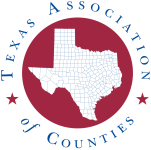Blog | February 23, 2022
Blog: Texas county clerks shore up cybersecurity for property owners

(CREDIT: Alan Bristol)
With cybersecurity issues on the rise for Texas counties, several county clerks' offices are enlisting the public's help to tackle breaches.
The Victoria County commissioners have approved a service that will notify a property owner if a document has been filed under his or her name, according to the Victoria Advocate.
County Clerk Heidi Easley told the commissioners that the service, which will cost $10,000 to set up and $2,500 annually to maintain, will allow an extra layer of protection against cyberattacks.
"Cyber criminals are getting a little bit smarter in the world and unfortunately technology has made it easier to fraudulently prepare documents," Easley said.
The program will be funded in part by American Rescue Plan dollars and will be available starting in February.
At least 20 Texas counties offer a similar service, including Gregg County, which recently launched its website to have residents sign up.
"If someone files a fraudulent deed or a bogus deed in the recording department of the county clerk's office, it's a matter of public record that that property belongs to that person," Gregg County Clerk Michelle Gilley told KLTV.
County magazine recently reported that Texas counties have been increasingly vulnerable to cyberattacks. There has been a steady increase in reported attacks from 2016 to 2019, and the number of attacks in 2020 matched 2019's peak. Some of the 254 county governments in Texas are particularly vulnerable to attack because they are typically decentralized and have small IT departments.
Counties can follow what's known as the 3-2-1 rule for computer security: Three sets of backups on two different types of mediums (hard drives and encrypted online backups, for example), one of them off-site.
Counties can learn more about protecting themselves by contacting their Risk Management Consultants. This year's County Management & Risk Conference, set for April 6-8 in Round Rock, will also offer extensive learning opportunities about cybersecurity. The Texas Association of Counties Risk Management Pool (TAC RMP) offers cybersecurity coverage as a part of its Public Officials Liability Program.

